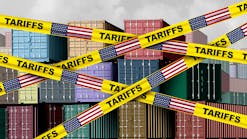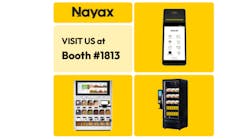In 1999, I learned the meaning of lowballing.
I was brewing coffee samples for the sales office of a large office supply company (one of the “big two”) during their morning sales meeting. In those days, office supply companies still felt they had a viable business model selling post-it notes and legal pads, so they needed us to supply their coffee. They had yet to enter the coffee service business.
There was a sense of panic as the meeting progressed. I heard one sales rep after another complain about the low pricing structure being used by their competition. One of the reps asked a key question: “What are we supposed to do when their price is lower than ours?” All eyes were on the sales manager as he paced in front of the room.
“It’s simple,” said the sales manager. “You bring the deal to me and I will approve special pricing. Do whatever you have to do to get the account and down the line, we’ll adjust the pricing. When we add new products, we will price them higher than normal and when your contact leaves the company, we will make major adjustments.”
This was lowballing defined.
The reps were all smiles. I was sickened and at the same time, very thankful that I was not selling office supplies. Little did I know – these guys would be competing with us in the coffee service business in fifteen years or so.
Lowballing (selling at a ridiculous price) is a pathetic sales technique, if we can call it a technique at all. This concept of “buying the business” lowers profit margins for everyone and misleads clients about our industry. Many operators on the East coast have told me that this type of pricing is common in that region, where coincidentally, office supply companies have jumped into the coffee service business with both feet.
Teach Intelligent Selling
As management, we need to educate our account executives on how to sell against lowballing. It takes some discipline and fortitude, because lowballing is a dirty business - based on the mindless concept that buyers are serious when they say, “It’s all about price.” That may be true when someone is buying a nut or a bolt, but when a multifaceted service program is being considered, the buying criteria is far more complex. I have known thousands of office managers, facility managers and purchasing professionals over the years. The ones who bought on price alone can be counted on one hand.
When training account executives, it is critical that we give them the tools and techniques to sell intelligently.
Here are five ways for your account executives to deal with a lowball competitive bid – five ways to deal with the buyer who says, “I’d love to do business with you, but your pricing is much higher than XYZ company.” Or, when your company has been asked to bid on an account, and the buyer says, “The current service is just OK, but you will have a tough time beating their pricing.”
5 Strategies To Combat Lowballing
I advise my clients to give this advice to their account executives:
1. Ask for a copy of the competitive proposal or the existing invoices. If price is the number one concern and the buyer really wants to do business with you, then showing you the competitive bid or existing invoices should be no issue.
Here is what to look for:
· Case counts and weights of product – is this an “apples to apples” comparison?
· Is your competitor offering cheap, but inconvenient variety packs?
· Does the buyer really need those very expensive super premium paper cups (being offered for way too low a price?) Or would regular hot cups with sleeves do the trick?
· Identify service charges, delivery charges, filter change charges, equipment rentals and other hidden fees.
· If you are looking at invoices, ask for a six-month old invoice from the current supplier and compare it to a current one. Are the prices the same? When you discover some price increases and point them out, the walls of resistance will come tumbling down.
2. Open your eyes: Find avenues for savings that go beyond products and price. Is the buyer really committed to savings as a top priority? Test the limits.
· Offer to replace the expensive single cup brewers with drip coffee by the pot.
· Taste test your private label coffee against their “big name brand.”
· Offer to replace the portion pack snacks with bulk snacks, dispensed from a beautiful rack system.
· Offer to replace their bottled water with point of use filtered water and give them a free month in the summer, when their bottled water expense was highest. It will do wonders for their budget.
· Is the buyer overpaying from a big, franchised first aid company? You can help them save.
3. If you have invoices from some of the lowball competitor’s other accounts, show them to the buyer, especially if the pricing differs greatly from what they presented in their offer.
Ask the buyer a simple question: Based on pricing from these actual invoices, do you really think you will be enjoying this lowball pricing for long?
4. Stop doing sales “presentations.” We could spend a week on this topic, but here is one important strategy.
Start asking questions.
· Why did you ask me to come in and see you today?
· Tell me how your current service program works? Note – It is a big mistake to assume that every company does all the great things that your company does, like inventory control, preventive maintenance, free emergency service calls and customer service visits.
· Can you tell me what your ideal service program would look like?
· If I can deliver that ideal program at a price that makes sense, is there any reason you would not move forward with my program?
Questions will open the door to some truth about the buyer’s true priorities.
5. Do price comparisons focusing on overall savings, not line by line savings.
A common lowball technique is to price certain items extremely low. Typically, those are the low usage items, but those lowball prices really stand out when compared to yours. Do not take the bait. Let the buyer know that your pricing is balanced and designed to stand the test of time. Prove your position to the buyer by simulating a monthly invoice. In our industry, the coffee, the cups, the creamers, the beverages and the snacks typically make up the bulk of spending. One box of tea that is $2.50 instead of $4.25 or a case of paper towels that is $10.00 lower will not impact the buyer’s overall monthly spend.
Never Drop Price without Consideration
Many of the strategies outlined above can be helpful when a lowballing competitor approaches one of your existing clients and presents a ridiculous pricing structure. If you have a contract, you do not need to do a thing about pricing. Despite your best efforts, sometimes a price adjustment is required on your part, either a percentage decrease or a reduction on some specific items, just to keep everyone happy.
If you make a price concession, insist on some consideration; either a written contract extension or additional products to sell. This will strengthen your contract position when some new future buyer tries to replace your company with their favorite nephew. If you fail to obtain some consideration, the pricing pressure will never end, but the viability of that account will be long gone – like legal pads and post-it notes.
I welcome your feedback. Call 818 261-1758, email [email protected] or visit www.tullioB2B.com
Over the last 37 years, Bob Tullio has sold video games, cigarette machines, cranes and juke boxes to bars and amusement centers, full line vending to public locations and office environments, pay telephones to retailers, coffee service to thousands of office locations and of course, micro-markets. He has a very successful track record as key strategist, sales trainer and media manager under the title, "Director of Business Development" for World Wide Vending and Gourmet Coffee Service.

Bob Tullio
Bob Tullio is a content specialist, speaker, sales trainer, consultant and contributing editor of Automatic Merchandiser and VendingMarketWatch.com. He advises entrepreneurs on how to build a successful business from the ground up. He specializes in helping suppliers connect with operators in the convenience services industry — coffee service, vending, micro markets and pantry service specifically. He can be reached at 818-261-1758 and [email protected]. Tullio welcomes your feedback.
Subscribe to Automatic Merchandiser’s new podcast, Vending & OCS Nation, which Tullio hosts. Each episode is designed to make your business more profitable.





